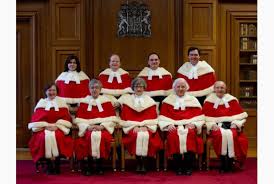The Privacy Case of the Year?
As we mark the technical end of summer, I can’t help but think that we’ve already seen the privacy case of the year. Granted we still have another three months left in 2013 but R. v. Telus has a lot going for it – especially in this increasingly “mobile” world.
The essence of the case can be seen as a police request for the production of text messages using a general warrant. General warrants are authorized by section 487.01 of the Criminal Code. A judge may issue a general warrant permitting a peace officer to “use any device or investigative technique or procedure or do anything described in the warrant that would, if not authorized, constitute an unreasonable search or seizure”. Section 487.01(1)(c) provides that this general warrant power is residual: a “fall back” if there is no other basis available – whether under the Code or another federal statute — to approve of the proposed police action.
 TELUS objected to the request, taking the position that a wiretap authorization was required because it was really an “interception of private communications”. The counter argument was that this was not an interception but rather an access request to data held in a database. This argument was available because TELUS, unlike the other two large wireless providers in Canada, stores every text message before delivery. The SCC adopted the TELUS position, quashed the general warrant order as well as a related assistance order.
TELUS objected to the request, taking the position that a wiretap authorization was required because it was really an “interception of private communications”. The counter argument was that this was not an interception but rather an access request to data held in a database. This argument was available because TELUS, unlike the other two large wireless providers in Canada, stores every text message before delivery. The SCC adopted the TELUS position, quashed the general warrant order as well as a related assistance order.
Why might this be the “privacy case” of the year? The headnote provides a number of points that will gladden the heart of privacy proponents:
1. Technological neutrality: “Technical differences inherent in new technology should not determine the scope of protection afforded to private communications.”
2. Further circumscription of the role and purpose of general warrants: “General warrants may not be used as a means to circumvent other authorization provisions that are available but contain more onerous pre-conditions. Judges faced with an application where the investigative technique, though not identical, comes close in substance to an investigative technique covered by another provision for which more rigorous standards apply should therefore proceed with extra caution.”
 3. Broad interpretation to the term “intercept”: “The use of the word ‘intercept’ implies that the private communication is acquired in the course of the communication process. The process encompasses all activities of the service provider which are required for, or incidental to, the provision of the communications service.”
3. Broad interpretation to the term “intercept”: “The use of the word ‘intercept’ implies that the private communication is acquired in the course of the communication process. The process encompasses all activities of the service provider which are required for, or incidental to, the provision of the communications service.”
4. Text messages engage privacy rights: “Text messages are private communications”.
In dissent, Mr. Justice Cromwell’s opinion, writing for himself and Madam Justice McLachlin is also worth reading. His position may be viewed as a more “technical” (in a legal not technological sense) in that he sees the case as a matter of statutory interpretation. Perhaps his key point may be viewed as:
“Fundamental to both the purpose and to the scheme of the provisions is the distinction between the interception of private communications and the disclosure, use or retention of private communications that have been intercepted. The purpose, text and scheme of Part VI show that the disclosure, use or retention of intercepted private communications is distinct from the act of interception itself.”
The effect of this decision will depend on its interpretation and application is subsequent legal decisions but it may be viewed as significant in delineating privacy boundaries for not just for civil libertarians and police but everyday people who increasingly communicate using text messages. Perhaps not much comfort in a post-Snowden/NSA world of mass surveillance but every little bit helps.


